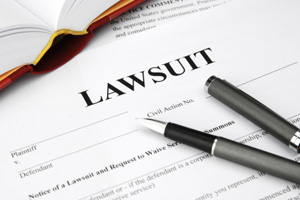Legal Services in Tehachapi
With offices in Tehachapi and Bakersfield, The Law Office of Phillip H. Darling provides legal services involving planning for incapacity and death, handling estates of minors and incompetent persons, and handling deceased person’s estates and trusts (e.g. probate and trust administration).
Estate Planning

Estate planning involves planning for incapacity and for death. You can appoint persons that you trust to manage your affairs, make health care decisions, pay your bills, etc. while you are competent. You can also appoint persons to manage (a.k.a. administer) your estate or trust after your death, as well as specify who will receive assets from your estate or trust, and when (for example an age requirement for distribution).
For more information see our FAQ page.
Trusts

A Trust is a legal relationship between the person who created the trust (a.k.a. the settlor, or trustor) and the trustee, in which the settlor transfers assets to the trustee. The trustee then administers the trust for the benefit of the beneficiary of the trust. Persons who establish their own trust are typically the initial trustees as well as the initial beneficiaries, and they can do whatever they want with their assets while they are alive. The biggest benefit to a Trust for most people is that the assets held in the Trust are exempt from probate.
For more information see our FAQ page.
Wills

A Will is a legal document that sets forth a person's instructions for handling their estate after their death. The Will can appoint persons as Executors who, when appointed by the Court, will then administer the deceased person's estate. The Will also specifies who will receive some or all of the deceased person's estate. The biggest drawback to a Will is that the deceased person's estate is subject to probate, as required by the Probate Code.
For more information see our FAQ page.
Powers of Attorney

A Power of Attorney (POA) is a document that gives specifically appointed persons the power to act on behalf of the principal (the person who signs the POA). The appointed person is referred to as an "attorney in fact" (which does NOT mean that they become a lawyer). The attorney in fact has the power to engage in transactions on the principal's behalf, as if they were the principal. The POA must also set forth the powers that the attorney in fact will have, and whether those powers are effective immediately or upon incapacity.
For more information see our FAQ page.
Advance Health Care Directives

An Advance Health Care Directive is a document that gives specifically appointed persons the power to act on behalf of the principal (the person who signs the Directive- just like a POA, but for health care decisions). The appointed person can be referred to as either an "attorney in fact" or as an "agent" or "health care agent." The agent has the power to instruct doctors and other health care providers concerning the principal's treatment, care, etc., including end of life decisions. The Directive can also address how the principal's remains are to be handled, how to handle a funeral or memorial service, organ donation, primary physician, etc.
For more information see our FAQ page.
Handling Deceased Persons’ Estates and Trusts

Handling a deceased person's estate or trust involves many of the same duties, which include, at a minimum, taking possession of all of the deceased person's assets, notifying heirs and beneficiaries, addressing creditor's claims (persons and entities that money is owed to), and distributing assets to the proper heirs or beneficiaries.
In a probate before the Court, the Court oversees the administration of the estate. In a trust administration, there is no Court involvement, which usually helps to expedite the handling of the administration, and it is usually much more economical than a probate before the Court.
Regardless of which method is used, the overall result is the same: Title to assets passes from a deceased person's name or Trust to the persons who are entitled to receive those assets, after all of the deceased person's creditors have been satisfied.
For more information see our FAQ page.
